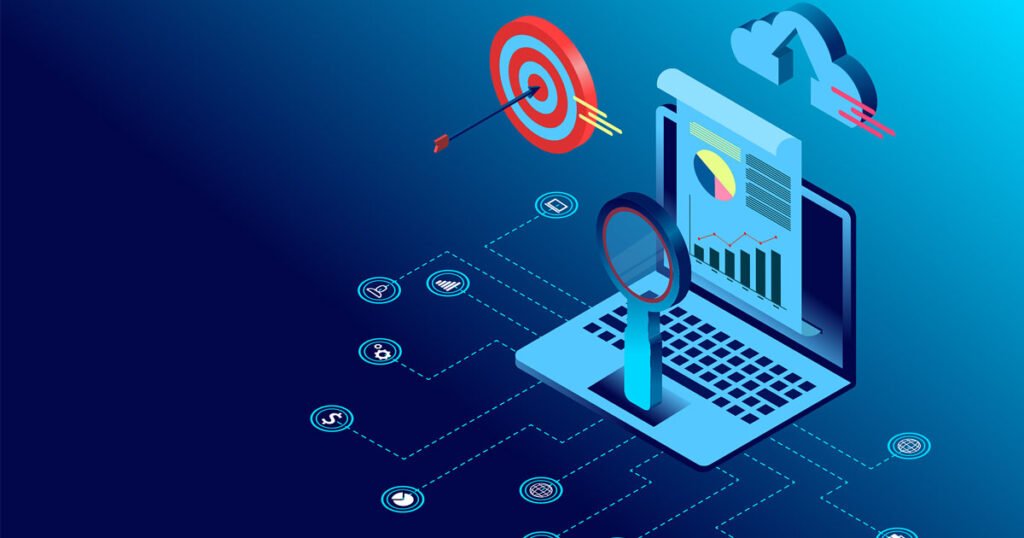Introduction
In today’s increasingly digital world, new technologies emerge rapidly, each promising to revolutionize various industries. One such term gaining attention is rivenisnet. While relatively new, it is generating buzz due to its potential to streamline processes and enhance efficiency across several sectors. But what exactly is rivenisnet? And why is it becoming so significant?
This article will provide a deep dive into rivenisnet, explaining its core concepts, benefits, and applications. We will also explore some of the challenges associated with implementing this technology and how these can be addressed effectively.
What is Rivenisnet?
At its core, it refers to a cutting-edge technology platform that integrates data sharing, communication, and automation within a decentralized framework. It’s designed to offer seamless connections across multiple devices, systems, and organizations, enabling smooth data flow and improving operational efficiency.
It stands out because it operates on a decentralized network model, which enhances security, transparency, and scalability. Traditional networks rely on central authorities to manage and control the flow of information, making them vulnerable to bottlenecks and security breaches. In contrast, rivenisnet distributes responsibilities across multiple nodes, removing central points of failure and improving performance. Visit us here for more details allenstoneware.
How Does Rivenisnet Work?
Rivenisnet works through a distributed architecture where each node in the network communicates independently but cooperatively. This decentralized approach not only ensures redundancy but also enhances the robustness of the system. Here’s a closer look at how rivenisnet functions:
- Data Distribution: Information is split and stored across multiple nodes. Each node holds a portion of the data, making it challenging for unauthorized entities to access the complete dataset.
- Secure Communication: Encryption protocols secure communication between nodes, ensuring that data transferred within the network remains private and protected from cyber threats.
- Automated Processes: It leverages smart contracts or pre-programmed rules that automate tasks and processes without human intervention.
By employing these mechanisms, it makes data sharing safer and more efficient, thus reducing operational costs and enhancing productivity.

Key Features of Rivenisnet
Understanding the key features of rivenisnet sheds light on why it’s gaining traction across various industries:
- Decentralization: One of the core features, this allows data and operations to be managed without a central authority, reducing risks of single points of failure.
- Scalability: It can handle increasing data loads without compromising performance, making it ideal for organizations dealing with large amounts of data.
- Interoperability: The platform supports seamless communication between different systems, devices, and organizations, promoting collaboration and data sharing across borders.
- Security: Advanced encryption techniques and decentralized storage make the network highly secure, reducing risks of data breaches.
- Automation: Smart contracts automate repetitive tasks, enhancing operational efficiency and reducing human error.
Why is Rivenisnet Important?
It holds great promise due to its ability to transform how organizations manage, store, and share data. Below are a few reasons why this technology is important:
- Enhanced Security: In an era where cyber-attacks are rampant, rivenisnet offers a more secure way to manage and transfer sensitive information. The decentralized nature of the platform reduces the risks posed by data breaches, ensuring that organizations can maintain data integrity.
- Increased Efficiency: By automating routine processes, rivenisnet reduces manual errors and speeds up workflows, which in turn enhances productivity.
- Cost Savings: With its scalable design, rivenisnet allows organizations to handle increased workloads without needing extensive infrastructure investments. Additionally, by automating processes, it reduces the need for extensive human labor, cutting operational costs.
Benefits of Rivenisnet
The advantages of implementing rivenisnet are vast and varied, depending on the industry and the specific use case. Below are some of the most significant benefits:
1. Improved Collaboration
It’s interoperability means that multiple stakeholders from different organizations can seamlessly share data. This promotes collaboration across industries and sectors that traditionally struggled with isolated data silos.
2. Lower Operational Costs
Since rivenisnet relies on automated processes and decentralized management, organizations can reduce expenses related to manual oversight, maintenance, and troubleshooting. The platform’s efficiency and scalability also contribute to long-term cost savings.
3. Enhanced Data Integrity
With encryption and decentralized storage, data manipulation and tampering become exceedingly difficult. This guarantees the authenticity and integrity of data, crucial for industries like finance, healthcare, and law.
4. Real-Time Data Access
Thanks to its distributed network, it allows real-time access to data, enabling quicker decision-making. Industries that rely on time-sensitive information, such as logistics and financial services, benefit greatly from this feature.
5. Streamlined Compliance
Many industries, particularly those dealing with personal or financial data, face stringent regulatory requirements. Rivenisnet simplifies compliance with these regulations by providing transparent and secure data management systems.
Applications of Rivenisnet
It’s versatile nature makes it applicable across multiple sectors. Below are some key industries where this technology is making an impact:
1. Healthcare
The healthcare industry can benefit greatly from rivenisnet. Hospitals and clinics often face issues with data silos, preventing patient information from being easily shared between institutions. With rivenisnet, healthcare providers can securely share patient records in real time, leading to better diagnosis and treatment outcomes. Moreover, it ensures that sensitive health data remains secure.
2. Financial Services
Banks, investment firms, and other financial institutions are highly data-driven and require advanced security protocols. It offers a solution by providing secure, decentralized storage and communication channels for sensitive financial data. Additionally, smart contracts can be used for automating routine banking tasks such as payments and loan processing.
3. Supply Chain Management
For companies involved in logistics and supply chains, transparency and efficiency are critical. It enables real-time tracking of shipments and inventory, reducing delays and improving overall supply chain visibility.
4. Government and Public Sector
Governments handle vast amounts of sensitive information, ranging from social security data to tax records. It can improve the management of public services by providing more secure and efficient data management systems, reducing fraud, and enhancing transparency in public sector operations.
5. Real Estate
The real estate industry often involves long, paper-heavy processes for tasks like title transfers and contract agreements. By leveraging smart contracts, rivenisnet can streamline real estate transactions, making processes faster and more efficient.
Challenges in Implementing Rivenisnet
While rivenisnet offers numerous benefits, there are challenges associated with its adoption:
1. High Initial Costs
Implementing a rivenisnet system requires significant upfront investments in technology and infrastructure. Small and medium-sized enterprises (SMEs) may find these costs prohibitive, despite the long-term benefits.
2. Complexity
Understanding and deploying rivenisnet requires technical expertise, which can be a barrier for organizations lacking skilled personnel. Companies may need to invest in training or hire new talent to manage and maintain the system.
3. Regulatory Uncertainty
In some industries, regulatory frameworks have not yet adapted to decentralized technologies like rivenisnet. This can create legal challenges, particularly in sectors that handle sensitive information like finance and healthcare.
4. Resistance to Change
Some organizations are hesitant to adopt new technologies, especially if they have long relied on legacy systems. Convincing stakeholders to embrace rivenisnet may require demonstrating its value clearly and effectively.
Solutions to Overcoming Challenges
While these challenges are significant, they can be addressed through strategic planning:
1. Phased Implementation
To mitigate high upfront costs, organizations can implement rivenisnet in stages. Starting with small-scale pilots allows companies to assess its effectiveness before scaling up.
2. Employee Training
Investing in employee training ensures that staff have the necessary skills to operate and maintain rivenisnet systems. Offering workshops and certifications can help bridge any knowledge gaps.
3. Collaborating with Regulatory Bodies
Organizations adopting rivenisnet should work closely with regulatory agencies to navigate compliance issues. Proactively addressing legal concerns helps avoid future complications.
4. Demonstrating ROI
Showing stakeholders the potential return on investment (ROI) can alleviate concerns about adopting new technologies. Highlighting case studies and data from successful implementations provides tangible proof of rivenisnet’s benefits.
Conclusion
Rivenisnet represents a powerful shift in how organizations manage, store, and share data. Its decentralized, secure, and scalable nature makes it applicable across industries, offering enhanced collaboration, security, and efficiency. Despite the challenges of implementation, rivenisnet’s long-term benefits far outweigh the initial hurdles, making it a valuable asset for forward-thinking businesses.
By understanding its potential and addressing obstacles strategically, organizations can unlock the full potential of this transformative technology.
FAQs About Rivenisnet
1. What is rivenisnet, and how does it differ from traditional networks?
Rivenisnet is a decentralized technology platform that allows for secure data sharing without relying on central authorities, unlike traditional networks that are centralized and more vulnerable to failures.
2. How can rivenisnet improve data security?
By decentralizing data storage and utilizing advanced encryption techniques, rivenisnet reduces the risks of data breaches, ensuring that sensitive information remains protected.
3. What industries can benefit most from rivenisnet?
Healthcare, financial services, supply chain management, government, and real estate industries can benefit significantly from the improved efficiency and security rivenisnet offers.
4. What are the main challenges of implementing rivenisnet?
The primary challenges include high initial costs, technical complexity, regulatory uncertainty, and resistance to change within organizations.
5. How can organizations overcome the challenges of adopting rivenisnet?
By starting with phased implementations, investing in employee training, collaborating with regulators, and demonstrating clear ROI, organizations can overcome the initial barriers to rivenisnet adoption.



